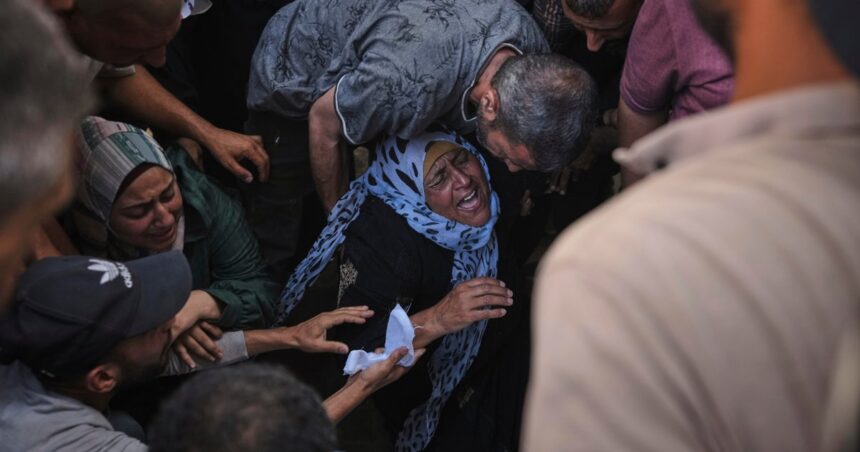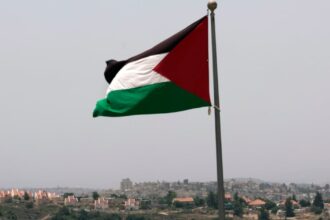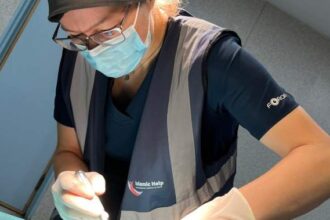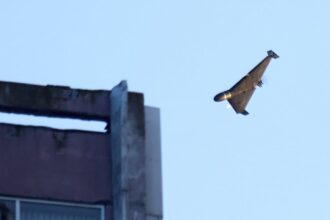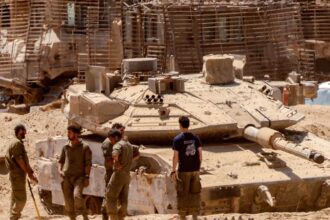In a troubling escalation that underscores the perilous conditions for humanitarian workers in conflict zones, several American aid workers were injured Thursday following Israeli airstrikes near a food distribution site in central Gaza. The incident occurred as Gaza faces what experts are calling an unprecedented humanitarian emergency, with famine conditions spreading through the war-ravaged territory.
According to eyewitness accounts, the strikes hit just meters from where World Central Kitchen (WCK) staff were distributing critical food supplies to desperate civilians. The organization, which has played a pivotal role in providing emergency meals throughout the conflict, confirmed that two of their international staff members sustained injuries but were in stable condition following medical treatment.
“Our team was clearly identifiable, wearing WCK vests and operating in a designated humanitarian zone that had been coordinated with Israeli forces,” said James Carpenter, WCK’s regional operations director. “The fact that aid workers continue to face danger despite taking all precautionary measures raises serious questions about whether humanitarian principles are being respected.”
The Israeli Defense Forces (IDF) issued a statement indicating they were “conducting a thorough review of the incident,” adding that they “take all possible measures to protect civilians and humanitarian workers.” However, this marks the second serious incident involving WCK personnel since April, when seven aid workers, including an American citizen, were killed in an Israeli strike on their clearly marked vehicles.
The World News implications of Thursday’s incident immediately reverberated through diplomatic channels. U.S. Secretary of State Antony Blinken expressed “deep concern” about the safety of humanitarian workers and called for a full investigation, while reiterating America’s support for Israel’s security.
The United Nations’ humanitarian coordinator for Gaza, James Elder, described the situation as increasingly desperate. “We’re witnessing the systematic collapse of Gaza’s humanitarian infrastructure,” Elder told CO24 in an exclusive interview. “When aid workers themselves become targets, the entire response mechanism breaks down, leaving civilians with nowhere to turn.”
The strike occurred as new CO24 News analysis reveals that less than 30% of needed food supplies are currently reaching Gaza’s 2.2 million residents. The World Food Programme has reported that acute malnutrition rates have doubled in recent months, with children particularly vulnerable.
Dr. Sarah Ahmed, a Canadian physician who recently returned from a medical mission to Gaza, told CO24 that the healthcare system has essentially collapsed. “We’re seeing diseases we haven’t encountered in decades because of contaminated water, malnutrition, and overcrowding,” she explained. “Without a significant increase in humanitarian access, the death toll from preventable causes will soon exceed those from direct combat.”
The incident has sparked renewed calls from Canada News outlets for increased diplomatic pressure to protect humanitarian corridors. Canada’s Foreign Affairs Minister has joined international voices demanding that all parties respect international humanitarian law, which explicitly prohibits attacks on aid workers.
Economic experts tracking the CO24 Business implications note that Gaza’s economy has contracted by an estimated 80% since October, with critical infrastructure damage exceeding $18.5 billion. Reconstruction efforts, whenever they can begin, will require unprecedented international investment.
As negotiations for a ceasefire continue with Egyptian and Qatari mediation, the question remains: at what point does the international community’s responsibility to protect civilians override geopolitical considerations? With each passing day, as more aid workers risk their lives to prevent a humanitarian catastrophe, the moral imperative for a sustainable solution grows more urgent.

